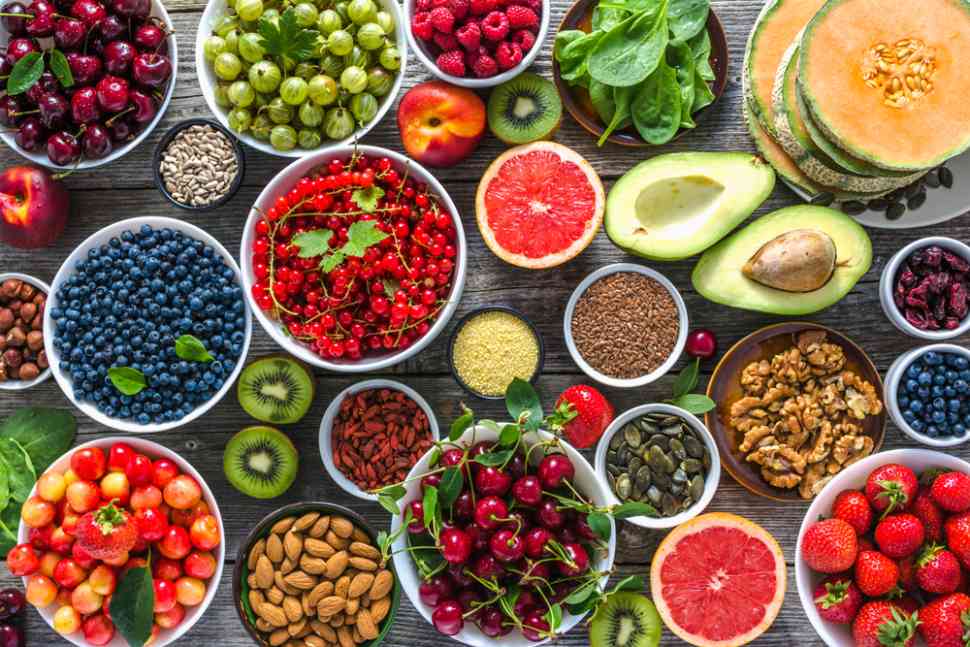How The Seasons Affect Our Diet

Most people eat different kinds of food in summer and in winter. Each season affects the body differently, so we need different vitamins, minerals, and nutrients to help us stay healthy during each season. Let’s see what we have to do and how the weather affects us.
How to eat in the cold winter
The drop in temperature accompanied by cold winds not only forces us to wear more clothes but also makes us eat more. It also leads us to unhealthy cravings. According to research, our genetics may be responsible for this, as well as other reasons, including:
The temperature: with the temperature decrease, our body has to work harder to keep warm. So more calories are needed to produce energy. When this happens, our mind sends a signal to the brain to wear more clothes and eat foods with more calories.
Dehydration: people generally tend to drink less water in winters, which leads to dehydration. This problem is quite common during this period. Our body really needs water. This is why we often confuse thirst with hunger and eat more food.
How to eat in the hot summer
The warmer temperatures of summer lead us to eat in a different way. When the weather is hot, we often start craving lighter, colder food and drinks. This is positive when we crave fresh fruit or light proteins. But beware of the craving for refrigerator sweets as well as ice cream and alcoholic refreshing drinks. Usually, in the summer, we turn to juices, fresh green salads, and other light dishes. But all this has a scientific explanation. It seems that our appetite is closely related to the climate, and in fact, what we put on our plate depends on changes in the weather.
What science says
According to experts, hot weather suppresses our voracious hunger, as our body needs something to help it cool down under these conditions. This is why we approach the hottest and most delicious dishes in the winter months. Experts report another curious finding. It turns out that the hot foods we consume in order to warm up are absorbed more quickly by our body, which is why they cannot keep us full for long. For the same reason, we eat at shorter intervals during winter and put on more pounds.
What can we do to control winter overeating?
Experts recommend eating foods of different temperatures in winter for an interval of 30 minutes. For example, after eating hot food, switch to fresh vegetables; their temperature is a little lower. Drinking a glass of cool water seems to be a good idea. Avoid drinking drinks of much lower temperature immediately after hot dishes so as not to have stomach problems.
What to do in the summer months
Experts also give tips on eating on hot days. During the hot days of the summer months, we can drink more liquid food and water to hydrate ourselves adequately. In cold weather, just consume plenty of proteins. Also, in the summer months, we are more often outside in the hottest weather and in the sun. So our body is able to convert sunlight into vitamin D. We also lose a lot of electrolytes through sweat in the summer, so it can be important to replenish electrolytes in the summer.
Vitamins that help with cold
Focus on foods rich in vitamin D. Researchers now know that it’s important to get enough vitamin D (along with vitamin K) to protect yourself against osteoporosis, certain cancers, Alzheimer’s disease, autoimmune disease, infection, and more. Omega-3 fatty acids can help avoid winter skin problems. The cold months can cause peeling, itching, and dryness of the skin, and getting sufficient omega-3 fatty acids can be very useful. Finally, vitamin C is the key to fighting colds and flu. Although the literature is confusing regarding whether vitamin C appears to protect against the disease, some research suggests it has been shown to reduce the severity and duration of colds. Vitamin C is also a powerful antioxidant.
More recommendations for cold
Remember to include vegetable protein and fiber in your comfortable food choices. Some studies suggest that colder weather combined with the holiday season may make us want to eat more meat-rich dishes that provide us with warmth. This can cause some digestive discomfort and constipation in those who replace fresh vegetables with meat-focused meals or anyone with a sensitive stomach.
Hydration is important all year long
Don’t forget to hydrate even when it’s cold outside. Most of us believe that during the winter months, water consumption can be decreased because we sweat less. However, in cold climates, fluid loss can be just as high due to lower humidity, increased urine losses, and less obvious signs of dehydration.
How weather affects fat burning
Contrary to popular belief, our body burns slightly more calories to adapt to low temperatures than when to adapt to hot weather. When our body produces heat, we burn extra energy or extra calories. Therefore, in cold environments, our body quickly adapts by stimulating smooth muscle contractions in order to generate heat. Shivering requires caloric energy to generate heat. On the contrary, the summer heat has little effect on calorie burning. If you sweat, this is not active calorie burning. However, if you are in a heated environment for prolonged periods or have a fever, this can increase your calorie burning.
Bring the best of the CEOWORLD magazine's global journalism to audiences in the United States and around the world. - Add CEOWORLD magazine to your Google News feed.
Follow CEOWORLD magazine headlines on: Google News, LinkedIn, Twitter, and Facebook.
Copyright 2025 The CEOWORLD magazine. All rights reserved. This material (and any extract from it) must not be copied, redistributed or placed on any website, without CEOWORLD magazine' prior written consent. For media queries, please contact: info@ceoworld.biz








